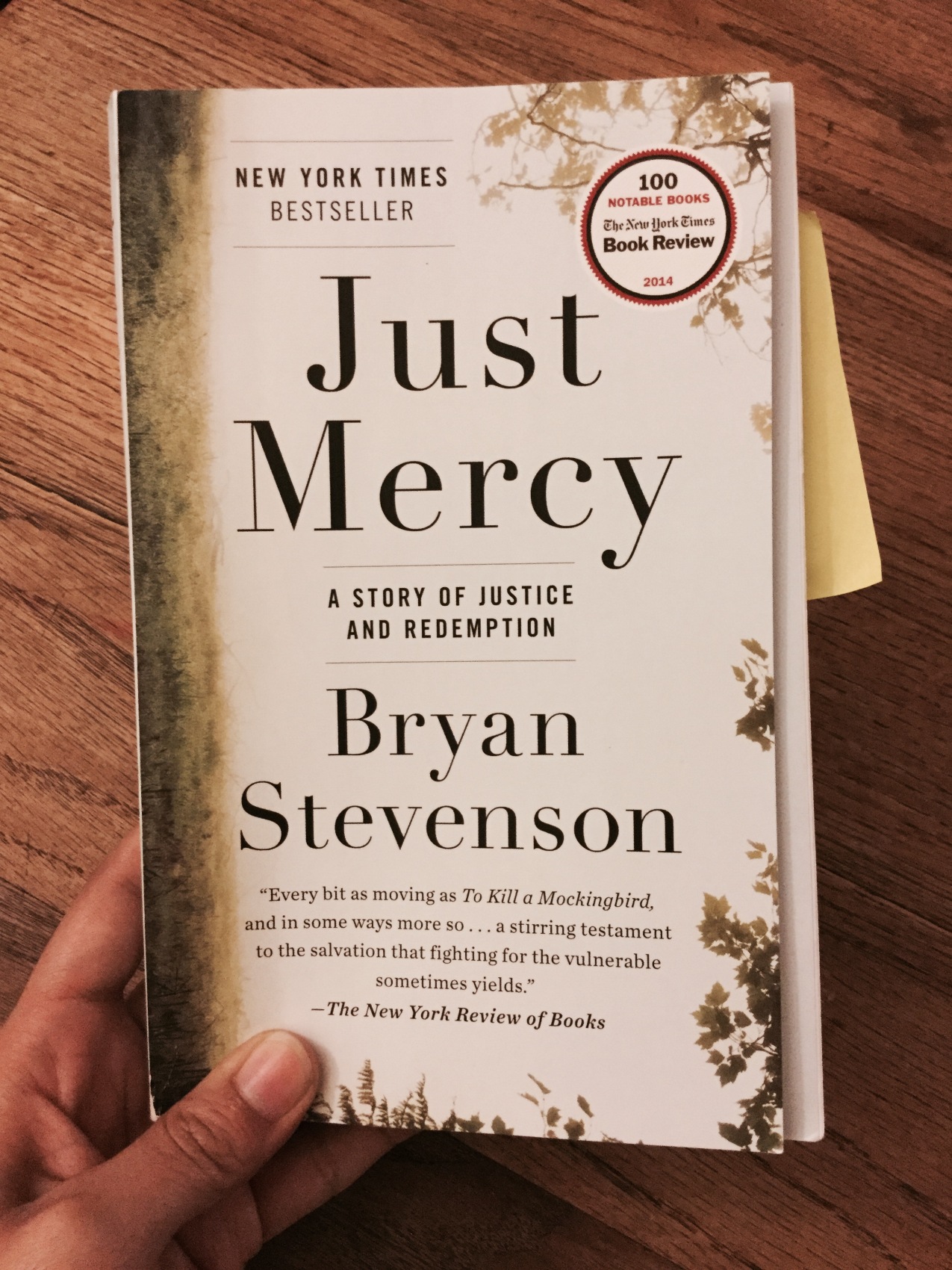The first time I heard about Bryan Stevenson was at an event on food justice where Ron Finley, a food activist who plants gardens in South Central LA, was the guest speaker. Finley began his talk on the availability of fresh food in poor regions of Los Angeles by asking the crowd what they believed to be the opposite of poverty.
A kid near the front of the room shot his hand up right away. Wealth, he said. That was my answer, how could it not be? Then, someone else proposed the idea that education was the opposite, this answer made me think but Finley shook his head at all our thoughts.
“Justice,” he said, quoting Bryan Stevenson by name. “Justice is the opposite of poverty.”
Months later I ran into the same line while reading Bryan Stevenson’s book Just Mercy, a personal account of how the current justice system in the U.S. is inadequate. When I saw the line again, I was reminded of Finley’s speech and how he had said with such conviction that justice is the opposite of poverty.
After reading Just Mercy, I understand why Finley believed in those words.
“Bryan,” he said at some point during our short flight, “capital punishment means ‘them without the capital get the punishment’…”
– Quote from Just Mercy
Just Mercy, a memoir by Bryan Stevenson, is an informative, easy to read, compelling work that talks about issues as serious as capital punishment in a very palpable way. Stevenson writes his memoir as a collection of stories about the many death-row inmates he helped and engaged with throughout his career as a lawyer. He details their cases and the challenges he has to overcome to provide many of his clients with any sense of hope.

Though much of Stevenson’s memoir focuses on the specific case of Walter McMillian, a man convicted of killing a young girl, Stevenson’s story tells a greater narrative about the injustices of our current justice system. What is more alarming is Stevenson’s details about the innocence of his clients. McMillian, for example was condemned to die for killing a young woman when over 40 different people confirmed his alibi.
One of the most heart breaking moments in the memoir is Stevenson’s last moments with an inmate whose execution he witnessed.
“I gave Herbert one last long hug…I thought of all the evidence that the court never reviewed about his childhood. I was thinking about all of the trauma and difficulty that had followed him home from Vietnam…There was a shamefulness about the experience of Herbert’s execution I couldn’t shake. Everyone I saw at the prison seemed surrounded by a cloud of regret and remorse…Maybe I was imagining it but it seemed that everyone recognized what was taking place was wrong.”
– Bryan Stevenson, Just Mercy
Stevenson’s memoir has made me angry for many different reasons including people’s lack of integrity, selfishness, racial discrimination, and poverty, among other things, but within all the anger I’ve felt felt while reading Just Mercy, I’ve left the book with a great sense of hope. I know that I’ve become a more compassionate person by reading his book and compassion is a quality we should all strive to gain more of.
To learn more about Stevenson’s work as a social activist please watch the video below. For information about Stevenson’s memoir please click here.
Leave a comment